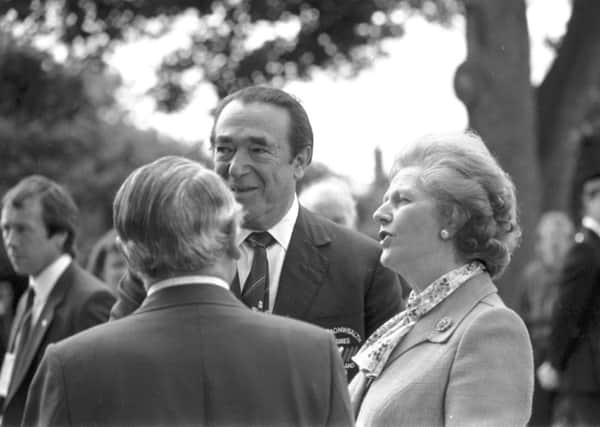Thatcher refused give in to Maxwell over 1986 Commonwealth Games


After scores of nations boycotted the Games in protest over apartheid in South Africa, the competition faced a major funding crisis and was in danger of falling through.
Newspaper owner Mr Maxwell stepped in to take on the “onerous task” of rescuing it, promising to raise contributions and put in his own cash. But with a shortfall of millions, he repeatedly asked the government to help plug the gap.
Advertisement
Hide AdAdvertisement
Hide AdDespite his cajoling, pleading and threats that the Games could face the “national humiliation” of having to be cancelled, the prime minister stood firm and refused to pay a penny.
Mr Maxwell so admired Mrs Thatcher’s obduracy that he eventually wrote to her to say he respected the way she “stuck to her guns”, promising a £2 million loan so small businesses could be paid and the Games wound up with “dignity”.
The government had declared as far back as 1979 that taxpayers’ money would be off limits for the Commonwealth Games, with funding having to come from sponsors. But with Britain increasingly seen as a “friend” to South African apartheid because of its opposition to economic sanctions, 32 of the 59 eligible countries boycotted the competition.
Sponsors pulled out, leaving just £4m raised of the expected £12m cost.
Advertisement
Hide AdAdvertisement
Hide AdScottish secretary George Younger suggested Mrs Thatcher might ask business leaders for contributions. But files released by the National Archives at Kew under the 30-year rule reveal the Cabinet Office’s reservations at the “slightly demeaning” involvement of the prime minister writing “begging letters”, and fears that helping the Games would pave the way for the 1992 Birmingham Olympic bid to go cap in hand to the government.
Mrs Thatcher flatly refused, writing on one briefing document: “I am not going to sign letters asking for money. The organisers must do that.”
Mr Maxwell took over as chairman of the Games committee in June 1986 and the following month wrote to the new Scottish secretary, Malcolm Rifkind, to ask the government for £2.5m towards the £3.8m deficit, but was again rebuffed.
Mr Maxwell met the prime minister on October 22, 1986, almost three months after the Games had finished.
Advertisement
Hide AdAdvertisement
Hide AdMrs Thatcher said she was “grateful” for his efforts, telling him the government would have “put at risk its credibility” if it had gone back on its word.
The following month, Mr Maxwell’s businesses set aside £2m to bail out 90 companies that gave money to the Games.
He wrote to Mrs Thatcher saying: “Though I did not like it at the time, I must tell you I admired the way you stuck to your guns in refusing to allow the use of Central Government funds to help with our deficit...”
Mrs Thatcher sent a brief reply, saying it was “too early for congratulations” but that she “never doubted” his abilities.